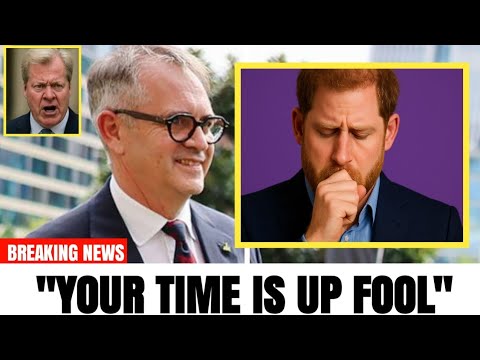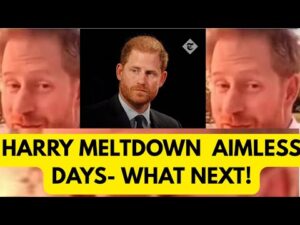Invictus CEO APPOINTS Mike Tindall As The New Patron Of Invictus Games End Of Era For Harry

What if the prince who turned a veteran’s triumph into his own global stage just lost his crown? Tonight, we uncover why Invictus CEO Rob Owen Obi has quietly ousted Prince Harry as patron and installed rugby legend Mike Tindle in his place. Sources say Owen grew fed up with endless Netflix shoots, scripted ceremonies, and political grandstanding that turned the games into Harry and Megan’s personal PR playground. What does this leadership shakeup mean for the soldiers who founded Invictus, and can Tindle steer the event back to its true mission?
Before we continue, please hit the like button, subscribe to the channel, and turn on the notification bell for updates. What if everything you thought you knew about Prince Harry’s role in the Invictus Games was about to change?.
Imagine waking up one morning to headlines proclaiming not just a routine change in patronage, but an outright end of an era. Invictus CEO Rob Owen Obi, frustrated by what he saw as Harry’s relentless self-promotion, has appointed former rugby star Mike Tindle as the new patron. That single decision rattles the world—Harry built a world in which his wounded veteran sporting event doubled as a stage for Netflix cameras, staged photo ops, and political posturing.
In the next few minutes, you’re going to get the full story behind this seismic shakeup. We’ll dive deep into why Rob Owen felt compelled to pull the plug on what many called Harry’s PR machine. How Mike Tindle emerged as the surprising successor, and what it all means for the future of Invictus and Harry’s own legacy.
By the end of this video, you’ll understand the clash of visions at the heart of the games, the uproar among veterans and royal watchers alike, and whether Invictus can return to its roots or is forever changed.
First, we’ll set the stage with the origins of Invictus and Harry’s founding vision, tracing how a small gathering in 2014 ballooned into a global phenomenon. Then, we’ll explore the controversies that brewed beneath the surface—the moments when disability advocacy crossed paths with Hollywood spectacle, when solemn flag-raising ceremonies felt more like movie premieres.
Next, we turn to Rob Owen himself, a decorated leader whose patience finally snapped after years of delicate negotiations and private warnings. You’ll hear how, behind closed doors, Owen charted a path to depersonalize the event and refocus on the veterans. That path led him to Mike Tindle. His credentials as an athlete, his reputation for authenticity, and his unique standing within the royal family gave him the edge over other candidates.
But the story doesn’t end there. We’ll move on to the fallout—how Harry and Meghan responded, or conspicuously didn’t. The reaction from palace insiders and the social media storm that pitted fans against critics in a fierce debate over influence, integrity, and the right balance between advocacy and self-branding. You’ll hear from veteran participants who feel their sacrifices were overshadowed by celebrity drama, as well as from supporters who believed Harry’s star power was essential to the game’s growth.
Throughout this video, we’ll lean on interviews with experts in nonprofit governance and sports management, pulling in data on attendance, sponsorship, and media coverage to illustrate the stakes. Is Invictus at risk of becoming just another celebrity charity event? Or can Tindle and a refocused leadership team steer it back to its founding purpose?
We’ll answer that question by looking at comparable events and forecasting where Invictus could be headed under new patronage. So why does this matter now? Because the Invictus Games represent more than just adaptive sports. They symbolize hope for those who’ve given so much in service to their countries.
When the founder himself becomes part of the controversy, it forces us to ask: who does this event belong to? The veterans? The royals? The media? Or the public at large? As you watch, consider your own answer—and stay tuned for our final takeaway, where we’ll offer actionable insights on how you can support the game’s true mission, regardless of who wears the patron’s badge.
The origins of the Invictus Games trace back to a single moment of frustration and inspiration. In the spring of 2013, Prince Harry attended a Warrior Games event in Colorado Springs—an adaptive sports competition for wounded, injured, and ill service members from the United States military. Surrounded by veterans who had lost limbs, suffered traumatic brain injuries, or struggled with post-traumatic stress disorder, Harry witnessed firsthand the transformative power of sport.
What began as a courtesy visit quickly evolved into a personal mission. He resolved to create a global platform where wounded warriors could compete, heal, and be celebrated rather than pitted. That resolution laid the groundwork for a movement that, over the next decade, would capture international attention, draw royal patronage, and inspire countless participants. By October 2014, barely 18 months after his initial visit, Prince Harry officially announced the inaugural Invictus Games. He chose London.




